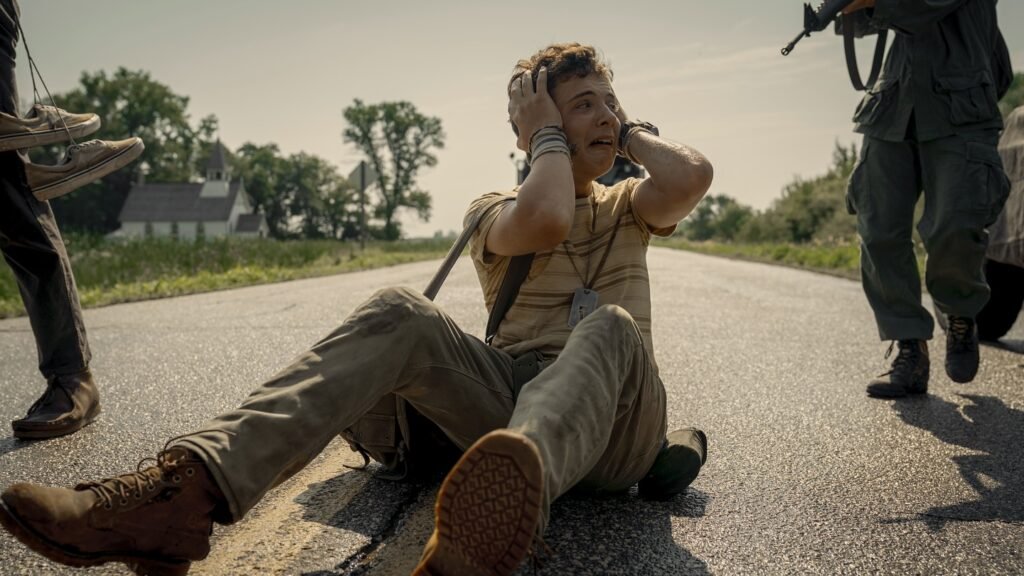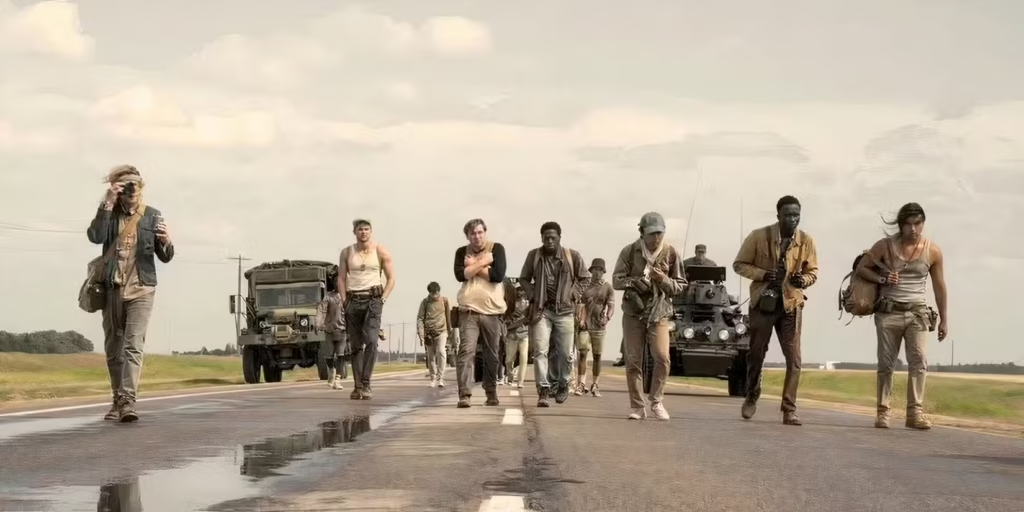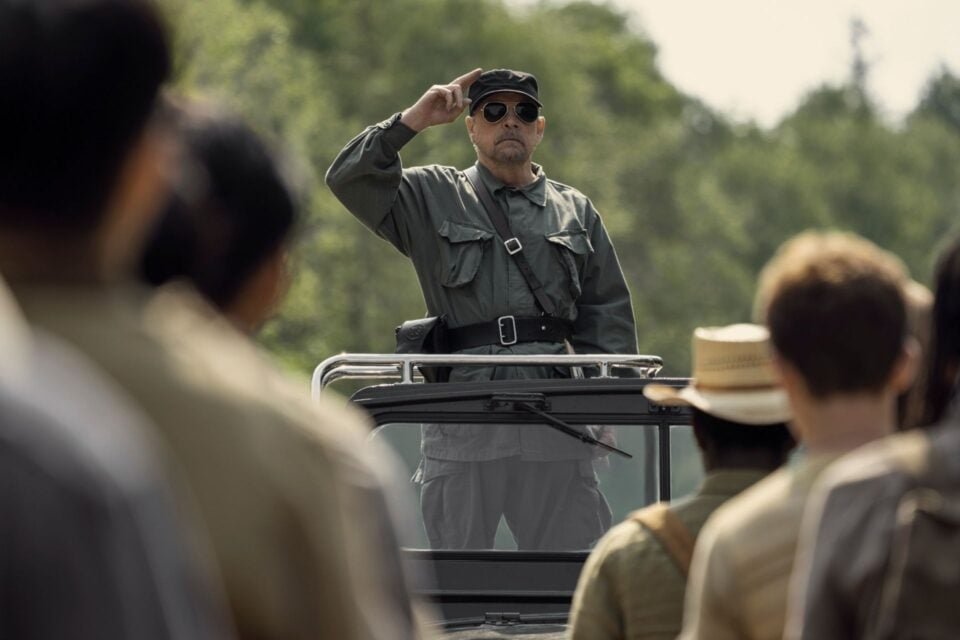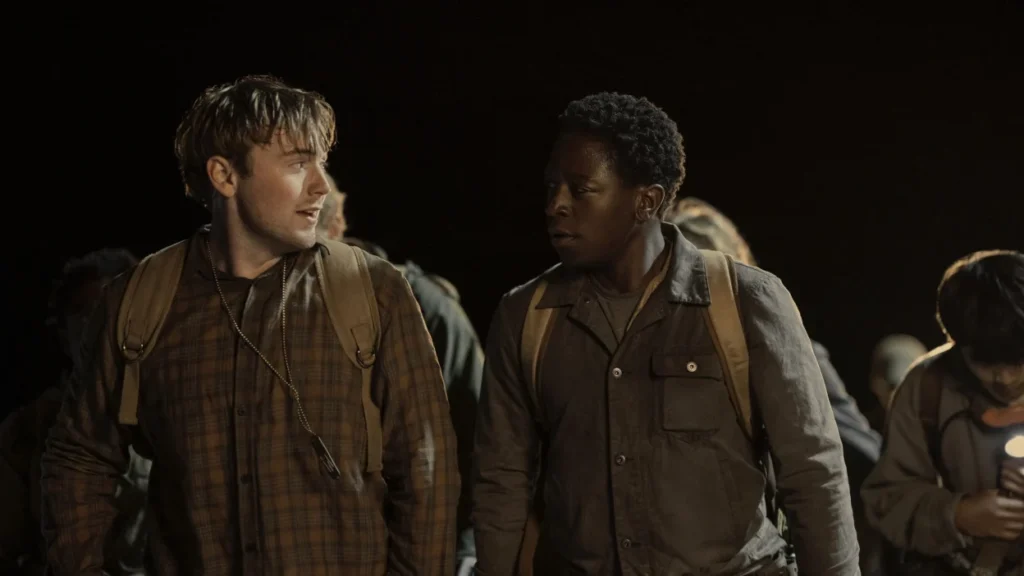
Reviews
The Long Walk
Despite the long, long list of outstanding Stephen King adaptations, The Long Walk deserves recognition as being among the very best; it may be simple in premise, but this film delivers some of the hardest-hitting sequences to reach the big screen in years. Adapted from King’s novel of the same name, The Long Walk comes to life through writer JT Mollner (Strange Darling) and director Francis Lawrence (The Hunger Games franchise). With a clear thematic kinship to The Hunger Games, Lawrence proves an astute choice, and with greater freedom to lean into moments of brutality away from PG-13, he crafts a film that feels disturbingly and uncomfortably real.
Set in an alternate United States left financially and economically devastated by civil war, The Long Walk imagines a society clinging to order through spectacle. Each year, one young man from every state is forced to compete in the Walk, a relentless march that continues until only one person remains. The survivor is promised wealth, glory, and one granted wish, a hollow reward in a country where desperation has become currency and endurance is the only path to the so-called American dream.The Walk has no finish line. Competitors must maintain a steady pace of three miles per hour, with no pauses for rest or even bathroom breaks, every need must be met while moving. Falling below the pace earns a warning, and after three warnings the onlooking soldiers open fire, shooting dead the unlucky competitor.

The movie doesn’t simply follow the novel’s storyline. JT Mollner introduces several creative changes that will be unfamiliar to readers of the book. Unlike many adaptations, where alterations feel forced or ineffective, the changes in The Long Walk, particularly the ending, land brilliantly, delivering a sensational surprise that may even outshine the original conclusion. Despite its straightforward nature, The Long Walk delivers some of the most disturbing and moving scenes I’ve witnessed in a very long time. Having experienced war films that recreate battles and warzones I’ve personally lived through, I was struck by how comparably visceral some moments here felt. The cast and crew deserve immense credit, creating a dystopian world that feels authentic is an almost impossible task, yet they manage it with haunting precision.

Speaking of the cast, the film ultimately rises or falls on their shoulders. A near two-hour runtime focused almost entirely on walking could easily risk losing an audience, but the two leads Cooper Hoffman (Licorice Pizza) and David Jonsson (Alien: Romulus) ground the story with remarkable performances. Despite their limited experience in leading roles, both feel like naturals, creating characters worth rooting for and evoking emotions that make the ordeal of the walk feel excruciatingly real.The supporting cast also deserves recognition. While many will rightly applaud Mark Hamill (Star Wars) for his terrifying portrayal of the Major, for me it’s the lesser-known actors Tut Nyuot (Steve) and Ben Wang (Karate Kid: Legends) who leave the strongest impression. As competitors, they make the most of their screen time, creating poignant moments that linger long after they exit the frame.

It would have been easy for the film to gloss over the deaths of characters we barely meet, yet every death, whether shown graphically or occurring off-screen, is acknowledged. This reinforces the senselessness of the violence of the walk, while also illustrating how the competitors gradually become desensitised and dehumanised as these horrific events unfold before their eyes. What makes the barbaric nature of The Long Walk so unsettling is that, in today’s unpredictable and rapidly changing world, it doesn’t feel entirely unimaginable at all. In a way, this may be why adaptations like this feel so exhilarating. But unlike many other stories of a similar nature, The Long Walk delivers sequences that linger in the mind long after the credits roll, and moments that are sure to spark conversation and debate.
